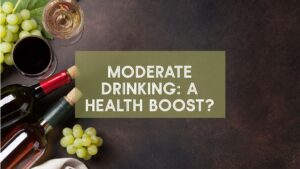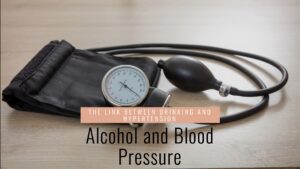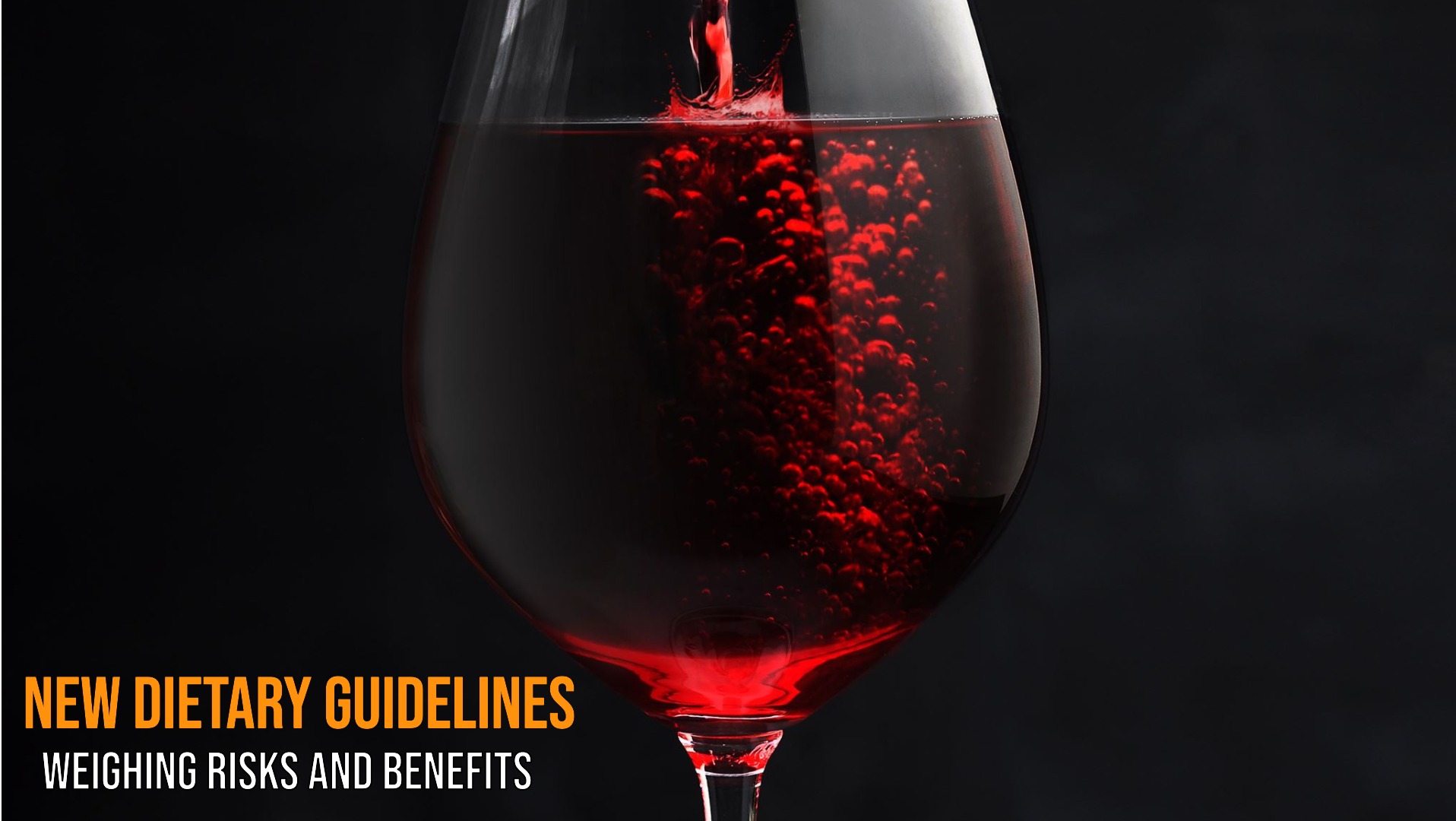While alcohol consumption remains a fundamental part of worldwide cultural traditions, the health effects of alcohol consumption now generate significant debate. The rising public concern about alcohol consumption has led to new dietary guidelines that assess both its risks and potential benefits. We examine new discoveries about alcohol consumption while assessing the risks associated and observing how changing attitudes and scientific progress will affect forthcoming guidelines.
The Prevalence of Alcohol Consumption in the U.S.
The majority of adult Americans consume alcohol regularly. Public perceptions regarding moderate drinking and its health implications have undergone substantial changes throughout recent years. A recent survey found that almost half of U.S. adults now believe moderate alcohol consumption poses health risks in contrast to public opinion from twenty years ago. Women and younger adults together with Democrat identifiers display a higher tendency to perceive alcohol as harmful for health.

The developing understanding of alcohol’s dangers reinforces the changing public perceptions about its health risks. New scientific findings highlight the risks associated with low alcohol consumption contrary to previous guidelines which indicated moderate drinking could produce health advantages.
Health Risks of Drinking Alcohol
1. Cancer Risk
Researchers identified a direct causal relationship between alcohol intake and cancer development as one of their major concerns. The medical community identifies alcohol as a preventable factor that leads to 100,000 cancer cases and 20,000 deaths each year in the United States and warns that any level of alcohol consumption increases cancer risk especially for breast and colorectal cancers. The newest dietary recommendations may incorporate this expanding evidence by stressing the need for caution.
2. Heart and Stroke Risks
Although some research indicates moderate alcohol consumption can reduce heart attack and nonfatal stroke risks, the overall analysis shows considerable negative consequences. Medical research has established excessive drinking as a major factor in cardiovascular disease development. Moreover, does drinking alcohol raise blood pressure? Yes, alcohol consumption leads to higher blood pressure levels when used excessively over time.
3. Interaction with Medications
The potential risks of combining alcohol with medications often go unnoticed. What possible side effects may occur when combining alcohol consumption with medication usage? Drinking alcohol while taking medication may decrease drug effectiveness and cause serious side effects that include drowsiness, dizziness and organ damage. People on prescriptions should be particularly cautious.
4. Digestive Issues
The digestive system suffers significant disruption from alcohol consumption. A common question involves fixing stomach pain caused by alcohol consumption yet preventing such discomfort proves to be more effective. The consumption of alcohol damages the stomach lining which results in pain and nausea and can cause ulcers when consumed chronically. Both reducing alcohol consumption and selecting non-alcoholic choices help alleviate this discomfort.
Also Read: 9 Stunning Wine Glass Set That Make a Perfect Gift
Potential Benefits of Moderate Drinking

Some studies indicate that moderate drinking might offer limited health advantages despite its associated risks. Limited alcohol consumption contributes to improved social connections and stress management while reducing nonfatal stroke and heart attack risks. Health specialists advise against using alcohol as a primary method to gain health advantages. Regular exercise and a balanced diet provide safer methods to reach the same health goals without exposing people to harmful risks.
Changing Guidelines and Public Health Recommendations
Health guidelines in the United States currently advise men to consume no more than two alcoholic drinks daily while women should limit themselves to one drink per day. The existing guidelines are undergoing evaluation and may be modified to incorporate new evidence that questions the safety of moderate alcohol consumption.

Recent surveys reveal majority support among Americans for cancer risk warnings on alcoholic drinks. The implementation of these labels would represent a major advancement in consumer knowledge acquisition while supporting educated decision-making.
How to Stop Drinking Alcohol?
Alcohol withdrawal or the act of decreasing it is a tough path yet it leads to real life changes in many individuals. If you’re considering how to stop drinking alcohol, here are some practical tips:
- Set Clear Goals: Set measurable goals in terms of whether you wish to avoid alcohol completely to begin with, or just set a fixed number of drinks you should take and track your progress.
- Identify Triggers: Learn when you feel the impulse to drink and find out healthier strategies for dealing with such conditions.
- Seek Support: Reach out to your friends, family members or join support groups to receive motivation and maintain responsibility for your progress.
- Replace the Habit: To help you get out of the habit of drinking alcohol you should replace it with non-alcoholic beverages or do activities that occupy your free time.
- Consult Professionals: Prescribed physicians and therapists have the knowledge to give personalized guidance and steps on what has to be done.
Dry January: A Step To Stop Drinking Alcohol
The COVID-19 brought about the increased rate of alcohol use because the population of Americans always resorted to drinking as a method of coping with stress and loneliness due to the outbreak. Some people go on with their drinking even while others engage themselves in the “Dry January’, a campaign in which people abstain from taking alcohol all through the month of January. The youth is expressing increased concerns in these programs much as it is offering a positive break for people who would wish to make some changes in their drinking patterns.
Which Of The Following Are Potential Side Effects Of Drinking Alcohol While Taking Medication?

Drinking alcohol while on medication can cause serious side effects, depending on the type of drug. Common issues include dizziness, drowsiness, nausea, and vomiting. Alcohol may reduce the effectiveness of antibiotics, increase bleeding risks when taken with blood thinners, or amplify sedation from antidepressants and antihistamines. Combining alcohol with certain painkillers or anti-anxiety medications can lead to dangerous respiratory problems or liver damage. Always read medication labels and consult a healthcare provider to avoid harmful interactions between alcohol and prescribed or over-the-counter medications.
How to Cure Stomach Ache After Drinking Alcohol?
If alcohol has upset your stomach, start by sipping water or an electrolyte drink to rehydrate. Avoid caffeine, as it may worsen irritation. Consuming plain, easy-to-digest foods like crackers, bananas, or rice can help settle your stomach. Ginger tea or peppermint tea may alleviate nausea and discomfort. Over-the-counter antacids can neutralize stomach acid and provide relief. Rest and allow your digestive system time to recover. To prevent future stomach issues, limit alcohol intake and avoid drinking on an empty stomach. Seek medical advice if the pain persists or worsens.
Does Drinking Alcohol Raise Blood Pressure?
Indeed, consuming liquor can boost your blood pressure levels. Alcohol affects the central nervous system, causing blood vessels to constrict and temporarily increasing blood pressure after consumption. Over time, this can cause chronic hypertension, an independent risk factor for heart diseases and stroke. This is because even small quantities of alcohol raise the blood pressure among people with sensitivity to alcohol.

Moderation is Key When Drinking Alcohol
Drinking alcohol requires careful moderation for those who choose to consume it. The consumption of alcohol carries risks that require serious attention. The development of new dietary guidelines alongside increasing public awareness demonstrates the need for a nuanced approach to alcohol consumption. Making educated choices about alcohol consumption and practicing moderation will help decrease its harmful health effects while advancing a healthier way of living.

